Ælfgif-who? provides short biographies of early medieval English women. Click on the podcast player if you’d like to hear this newsletter read aloud in my appealing Yorkshire accent.
Burginda: An early medieval English woman well-versed in African poetry
A copy of a woman’s letter survives in an eighth century manuscript in Boulogne. The Latin letter is addressed to an ‘illustrious young man’, though his name is not supplied, and is from a woman named Burginda - possibly a Latinisation of an English name Burgyth. She was probably writing in Bath, Somerset, in around 710.
Burginda’s letter is instructing the young man in his spiritual endeavours, and the contents of the (albeit short) letter reveal that she was highly educated and well-read. Written in a period that many still refer to erroneously as an intellectual ‘Dark Ages’, Burginda’s letter uses Greek words, utilises biblical exegesis, imitates Christian poetry like the fifth-century Psychomachia of Prudentius, and references both the sixth-century Italian poet Arator and the classical Roman poet Virgil. It also contains a reworking of a description of heaven found in a Latin poem from Africa that dates to c. 500. Burginda was clearly a very well-read intellectual.
This letter can be used as an example to refute many popular misconceptions about the early middle ages. The first misconception is that antique texts were neglected or unknown in this period. The second misconception is that medieval women were uneducated and unintellectual. The third misconception is that there was little or no intellectual transmission between Africa and Europe in this period. Burginda’s letter proves all these assumptions false. Not bad for two paragraphs of Latin.
Despite this, Burginda’s letter has not received much attention from historians, and when it has been looked at, the quality of her Latin comes under particular scrutiny. In his Oxford Dictionary of National Biography entry on Burginda, Patrick Sims-Williams comments that ‘Burginda herself should perhaps be located in Bath monastery: it is difficult to see why her poor letter would be copied far afield’, adding that ‘despite the weakness of its Latin, Burginda's letter is an important piece of early evidence for female education’. The text does indeed contain some grammatical errors, that Sims-Williams has drawn particular attention to in his writing on Burginda.
As the scholar who has written most about this letter, Sims-Williams deserves much credit for drawing attention to Burginda and to the breadth of her education. But I identify the comments on her Latin as part of a greater trend by historians, an implicit bias perhaps, to highlight the grammatical mistakes or the use of so-called ‘poor Latin’ in women’s writing. Men are given the benefit of the doubt much more frequently when they play fast and loose with the rules of Latin grammar. The idiosyncrasies of this letter could be due to the scribe, and not Burginda as author. As I argued in my newsletter on the eighth-century author Hugeburc, who has also been similarly scrutinised:
It is often assumed that the unconventional writing styles of some early female authors reflect a poor knowledge of Latin, rather than merely demonstrating a different approach to Latin composition or a different skill set.
Burginda’s Latin is neither remarkably good nor remarkably bad, and in analysing its quality to the extent of being dismissive we lose some of the emphasis on the sheer range and breadth of Burginda’s literary knowledge, and what it demonstrates to us about the early middle ages as a period of intellectual endeavour.
I end with Burginda’s letter in full (translation into English by Sims-Williams)
Illustrious young man, you are ignorant of the future, whether glorious Felicity might bring to you the delights of the world beneath the stars, or Misery spew from her bloody mouth: so strive with all your might that the bright light might shine for you in heaven and the health-giving breeze may blow for everlasting days and unchanging time, and you may reign over God’s remote places which are exceedingly blessed and rich in lands, in the serene heights of his abode. ‘Go alone holy and blessed’ is the single message proclaimed by all.
Receive in your soul what the Spirit, kindly coming twice, creates in our hearts as to keep the two commandments inscribed on the tablets of stone, ‘Love God with a fervent mind and be filled with love’ and again ‘May your neighbour be as dear to you as you yourself.’ Keep this whole law and always whenever you pour out your soul in your prayers to the living God on high and your eyes become soaked in tears, may the memory of my name, Burginda, merit your good deeds so that your prayers may deserve to be fulfilled.
Patrick Sims-Williams, ‘An Unpublished Seventh- or Eighth-Century Anglo-Latin Letter in Boulogne-sur-Mer MS 74 (82)’ in Medium Ævum, 48, 1 (1979), 1-22.
Did you enjoy this? Read more about early women writers:
Women and Manuscript Culture
Ælfgif-who? provides short biographies of early medieval English women. Click on the podcast player if you’d like to hear this newsletter read aloud in my appealing Yorkshire accent. Women and Manuscript Culture in Early Medieval England A conversation with University of Leicester PhD student Jessica Hodgkinson about her research


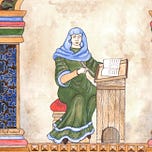


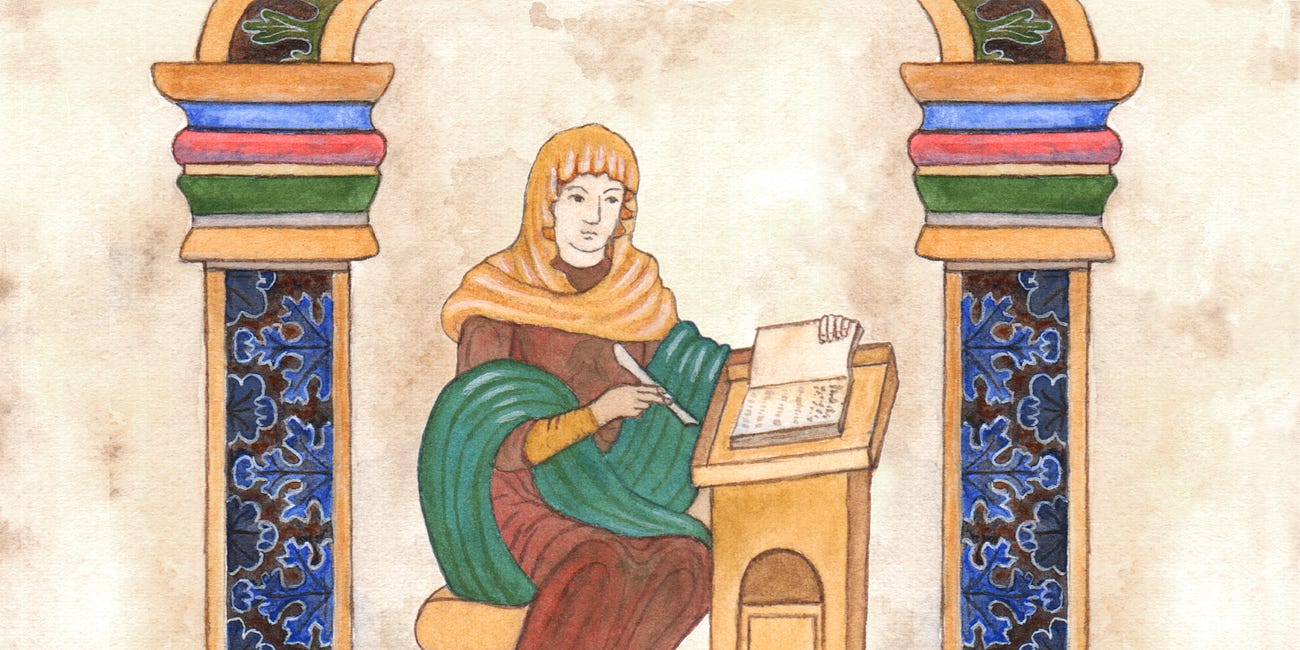

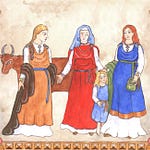
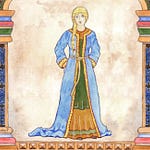
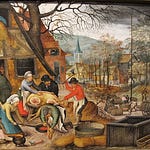
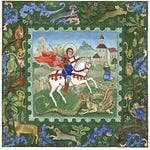


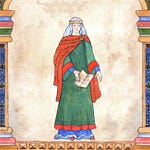
Share this post